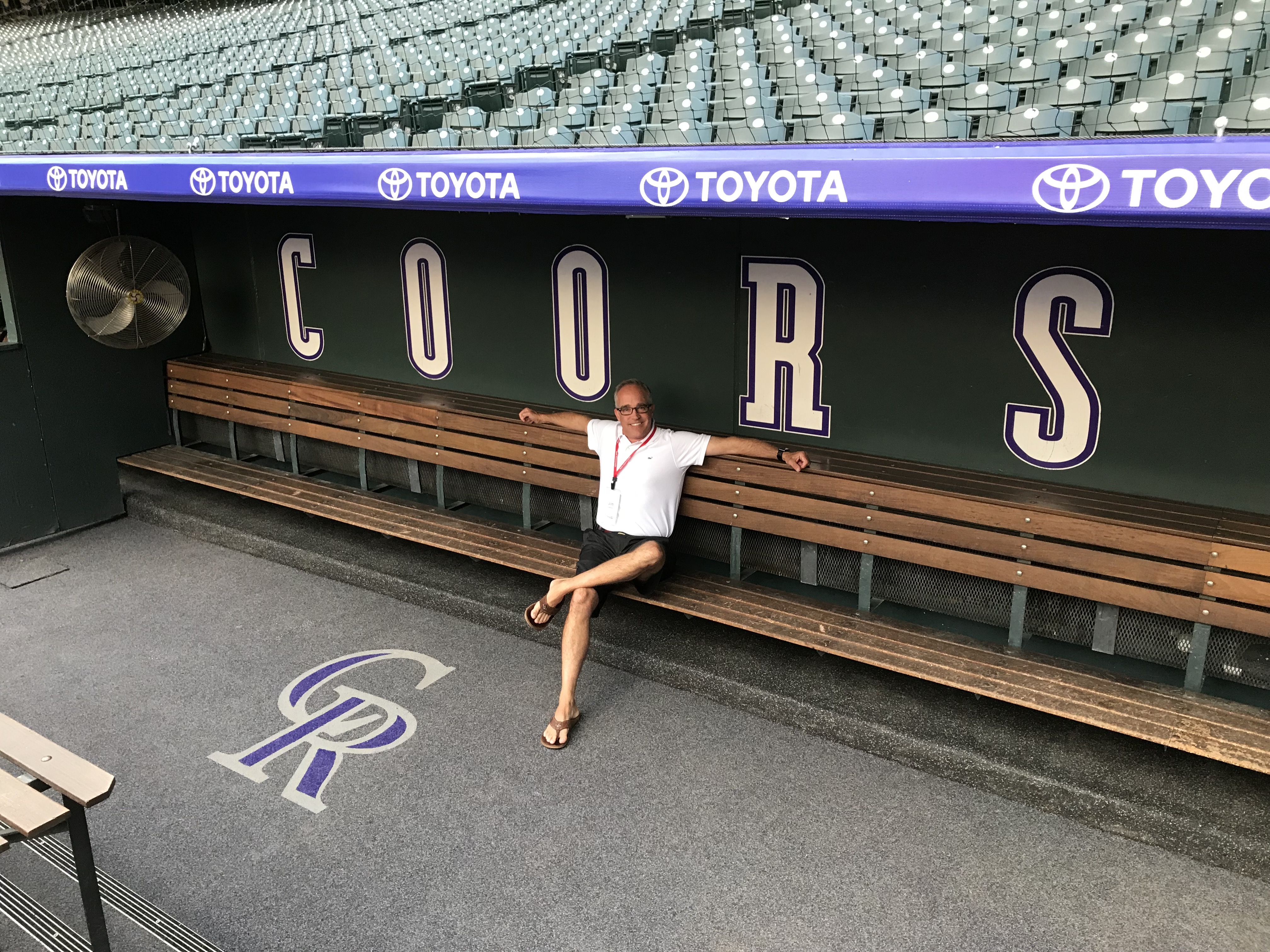GLI GLIDE Trip to Denver

That was one of the bigger ideas that emerged from a brainstorming session held in Denver Tuesday afternoon to cap the Greater Louisville Inc. GLIDE trip.
For the better part of three days, local business, civic, education, transportation and nonprofit leaders joined Louisville Mayor Greg Fischer and other public officials in the study of Denver’s rapid ascent as an educated city full of young professionals drawn by culture and amenities.
As we quickly learned, much of Denver’s economic engine is powered by its expansive international airport, which has a rich global presence with more than two dozen international nonstop flights.
The airport is connected to downtown Denver through commuter rail, and Denver has adopted light rail after instituting a local-option sales tax to fund its construction and maintenance.
The airport’s distance from downtown Denver is nearly equal to Shelbyville’s distance from downtown Louisville. Jim Dahlem, president of Louisville’s Dahlem Enterprises Inc. argued that the geographic location would better link Lexington and Louisville, creating a regional transportation hub between Kentucky’s two largest cities.
“It should’ve been done 40 years ago,” he said.
Dahlem admitted it would be a radical move, but he pointed out that Denver built up its regional airport specifically to become a global city.
Louisville’s challenge would be compounded by the presence of the United Parcel Service Inc. air hub, Worldport, but Dahlem and others argued in favor of giving UPS the existing airport for future expansion.
Louisville leaders were encouraged to share such bold ideas by GLI President and CEO Kent Oyler, who broke the group into smaller teams to discuss improvements in the areas of business recruitment, transportation, lifestyle amenities and intergovernmental partnerships.
Each group presented their findings, which will be combined into a GLI report. Oyler said a wrap-up session will be held with attendees soon to debrief and decide what areas to seriously explore.
In the meantime, I have compiled a few more of the bolder concepts discussed yesterday.
Local-option sales tax movement
Louisville Metro Government and GLI previously led a multiyear campaign for a right to pursue a local-option sales tax.
To have this tax option, the Kentucky legislature must modify laws to make local-option sales taxes legal. Individual communities still would have to approve any sales tax increase to fund specific projects.
The effort was defeated in Frankfort each time.
“All we had to do is land on a rail platform to be reminded of the importance of local-option sales taxes,” Louisville Forward Chief Mary Ellen Wiederwohl said during the trip. “… That’s going to hold us back long term.”
During the trip, we often heard from Denver leaders that they actively worked to strip partisanship out of local regionalism efforts in the spirit of being geographically and politically agnostic,
To that point, there was discussion about politicians stepping aside and letting GLI and other private agencies lead any future pushes for a local-option sales tax.
The argument was that, by putting the issue firmly in the hands of the business community, the political aspects of the proposal could be stripped from the process.
Listen more and improve relationships with Frankfort
Louis Straub, Louisville market president for Independence Bank, told the group that he would like to see more cooperation with Frankfort. That could start by inviting state legislators, including those from rural districts, on the annual GLIDE trip.
But Straub said Louisville could take it further by bringing legislators and partners in surrounding counties together for a local conference in which they also host economic development leaders from other cities, such as Denver, as a means to bring GLIDE to the people.
These efforts may help narrow the divide between Louisville and the rest of the state by showing that Louisville is invested in Kentucky and aware of what’s going on in the rest of the state.
“We as Louisville citizens have to listen,” he said.
I also sat in on a work group that pushed for increased involvement in statewide entities such as the Kentucky League of Cities and Kentucky Association of Counties and more overtures to promote Southern Indiana as an active part of the region.
Light rail: Are we too late?
Light rail came up several times during the three-day trip, but the responses were decidedly mixed. Some felt it was worth exploring as a new transit option while others feel we are about 10 years too late.
As an alternative, several people told me they would prefer that Louisville leverage its automotive and manufacturing expertise to push for the development and testing of autonomous vehicles locally. Several GLIDE attendees felt that is the next logical step in American transportation, and Louisville could be part of that industry’s growth.
Dahlem also called for the city to stop thinking small and to adopt Denver’s think-bigger mentality. He argued that the failed West End Walmart and pushback on the Omni Louisville Hotel and an East End Topgolf put out negative vibes.
“It sends a message,” he said. “It sends a very bad message to people who want to come into our community and want to develop in our community.”
